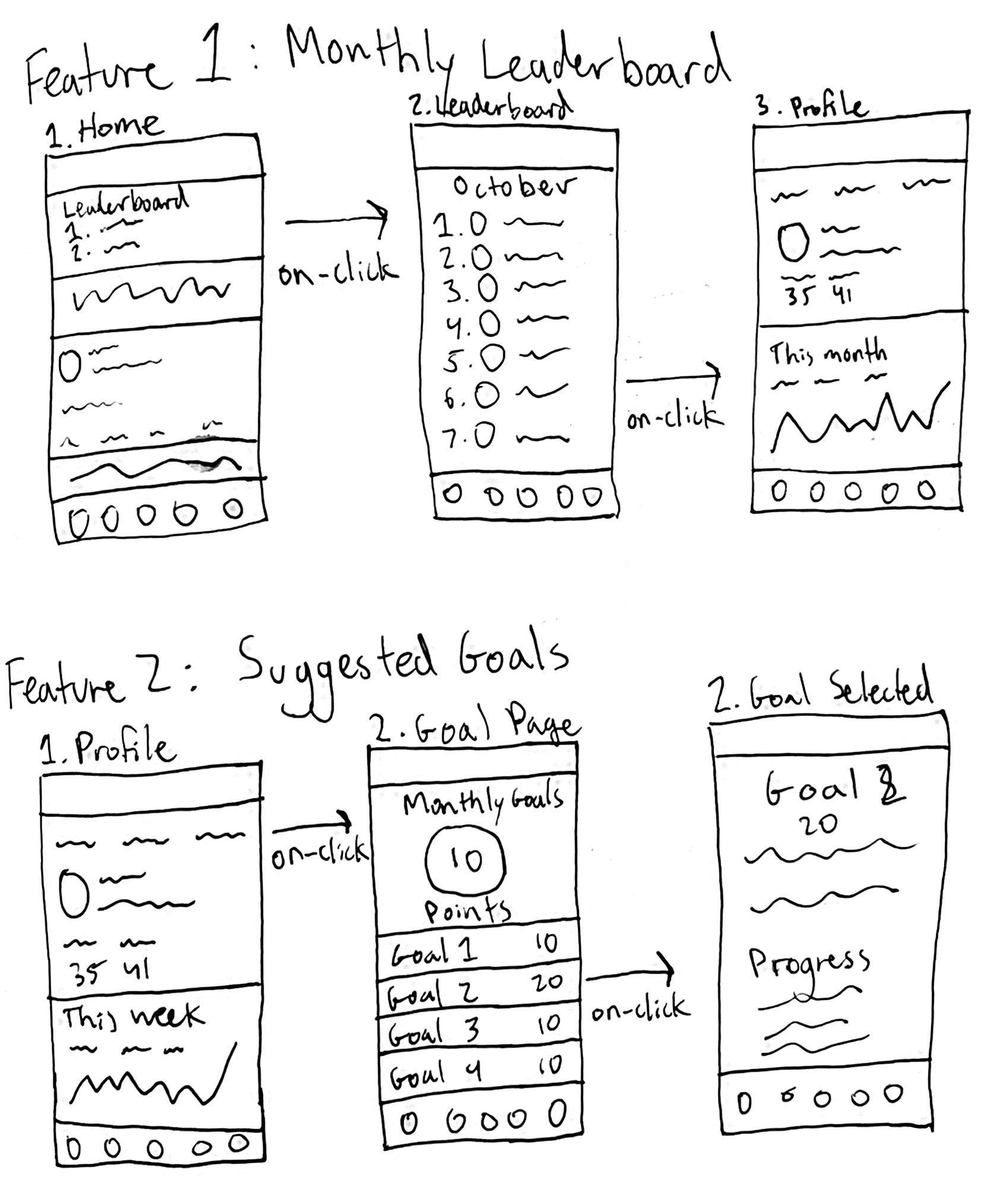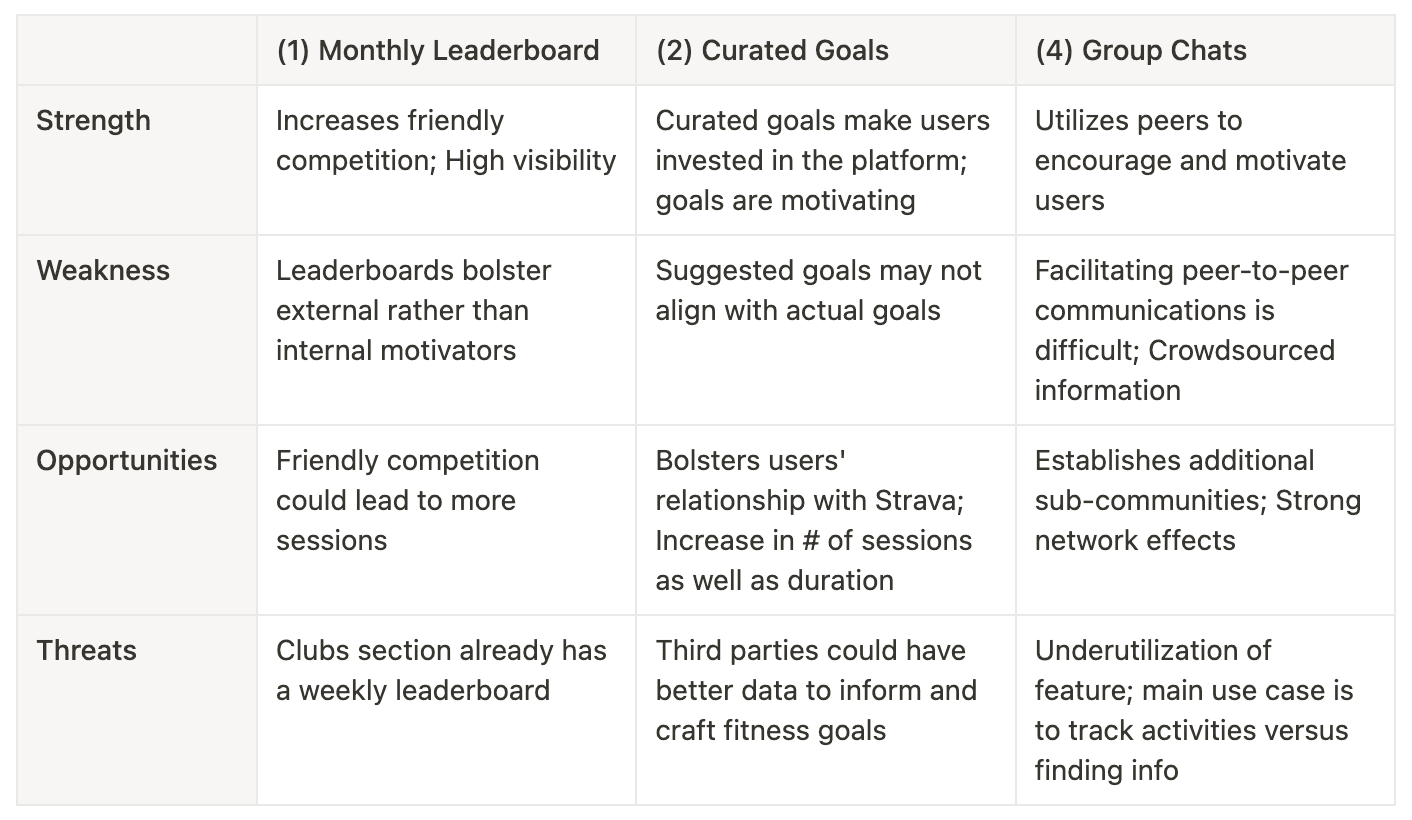Company
Strava (Capstone)
Roles
UX/UI Design
User Research
Prototyping
Team
1 Product Designer
Timeline
5 months
(Jan—May 2022)
As a senior at Cornell, I took a product design course with AppDev. For my project, I designed a new feature for Strava, enhancing its social fitness platform for tracking athletic performance.
Overview
Background
Company
It combines activity tracking tools with a social network, fostering connections and motivation among athletes worldwide.
Research
Summary
Core Findings
Users were motivated to level up their fitness
Power-users are Runners
People want to share their activities
People weren't consistent in recording all activities
Problem Statement
As a runner, I want to improve my performance to achieve my fitness goals, but I can't do that well because...
1. I don't know what fitness benchmarks to set
2. It's difficult to hold myself accountable
Ideation
Potential Solutions
I got together with a product strategist and brainstormed solutions; here are a few of our favorites:
A monthly leaderboard for your followers
Personal goals based on previous activity
Invite only competitions/clubs
Group chats for goals with likeminded people
Community Forums for improving performance
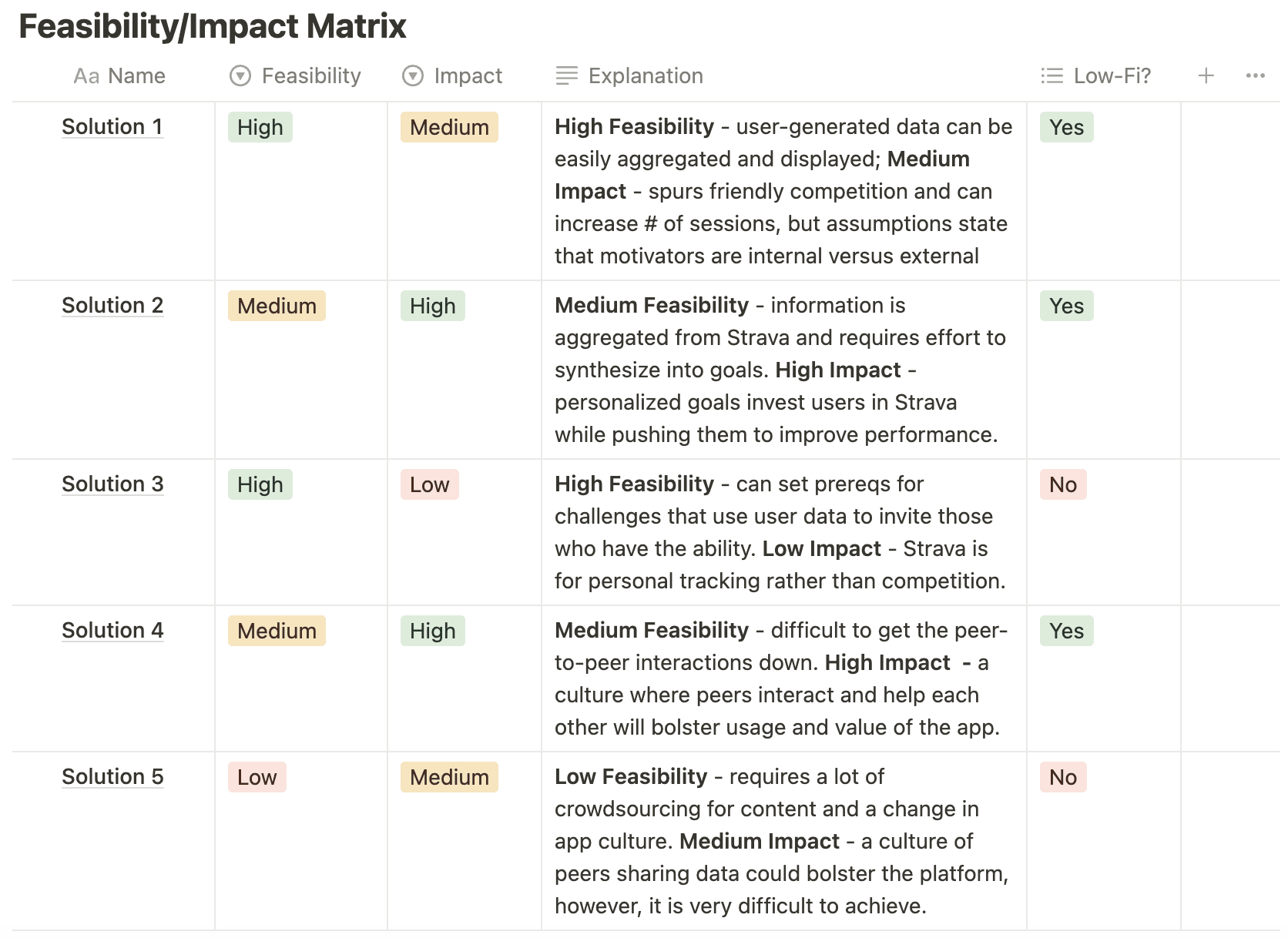
Low-Fidelity Wireframes
Using the insights gained from the feasibility/impact matrix, I decided to explore three solutions in low-fidelity wireframes.
SWOT Analysis
To hone in on a single solution to develop into high-fidelity wireframes, I conducted the following SWOT analysis to assess the potential of each solution:
Information Architecture

I identified the “You” page as the logical entry for Personal Goals, designed user flows, and created medium-fidelity wireframes. Key screen explorations informed tradeoffs, refining the final solution.
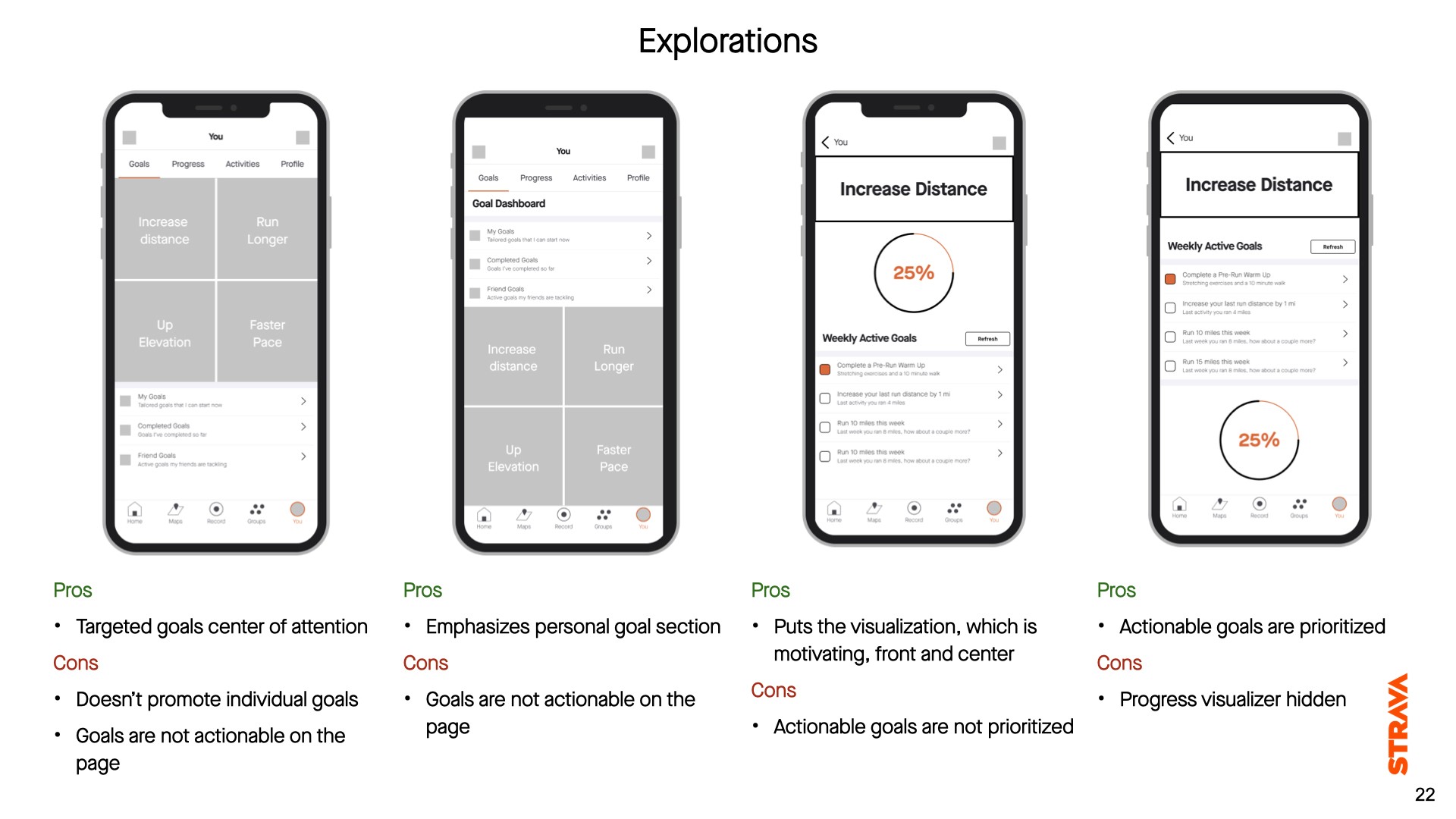
Final Designs
Design System
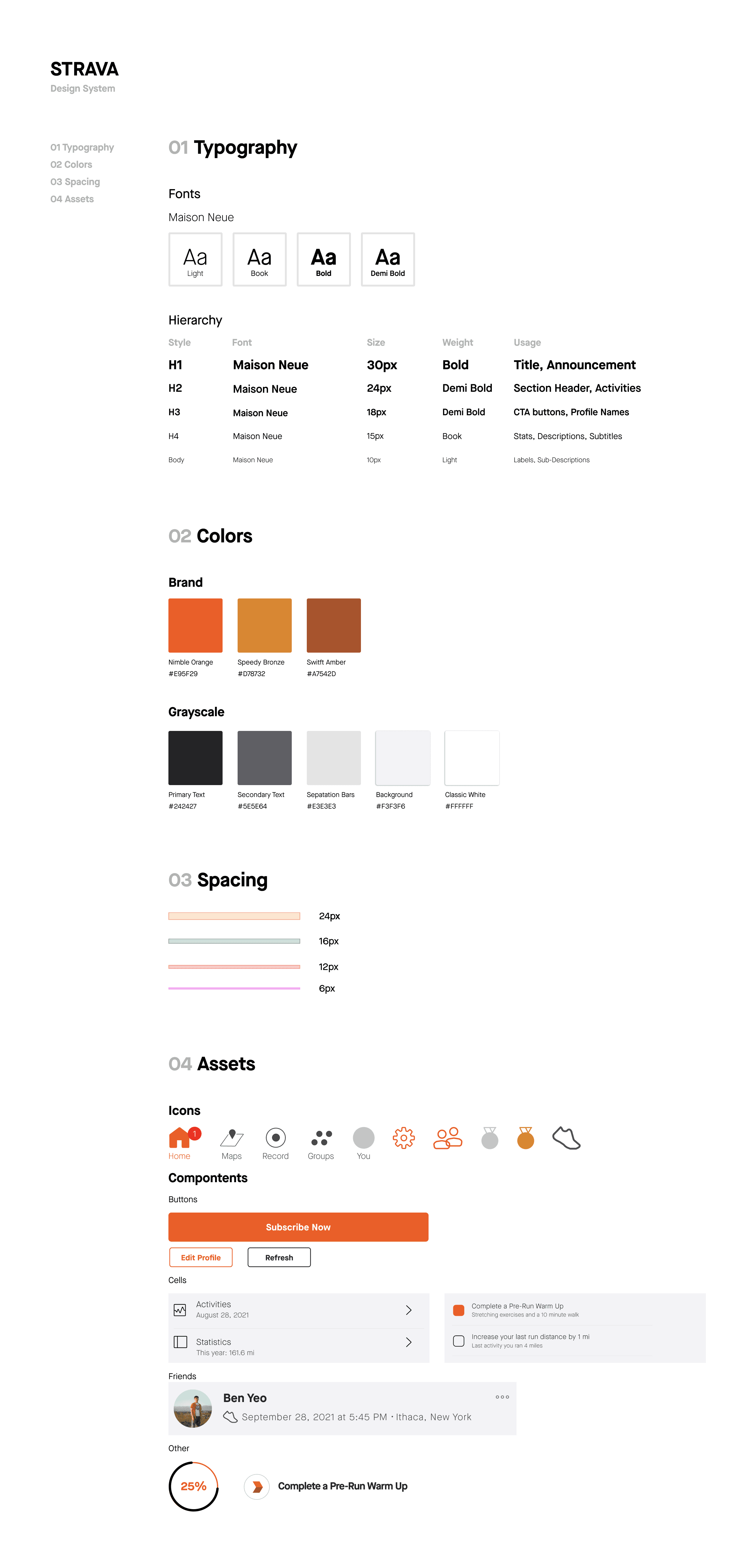
Closing Thoughts
Technical
Assess constraints of using the profile page as the entry point.
Verify feasibility of pulling data from users’ previous activities.
Future State
Introduce gamification with badges or awards.
Design screens for compatible wearables.
Enable users to provide feedback on Personal Goals’ impact on performance.
Arrange user testing sessions with key stakeholders, leveraging asynchronous testing via Lookback.io.
Iterate final designs and hand off to Engineering after alignment with PM.
Post-MVP launch, conduct A/B testing to evaluate different experiences.
Designing Personal Goals addressed Strava’s business needs by incentivizing paid subscriptions, increasing sessions, and enhancing gamification. The solution supports the app’s core purpose—recording activities—while inspiring users to improve performance and stay active.
Interested in more? Feel free to check out another case study.


